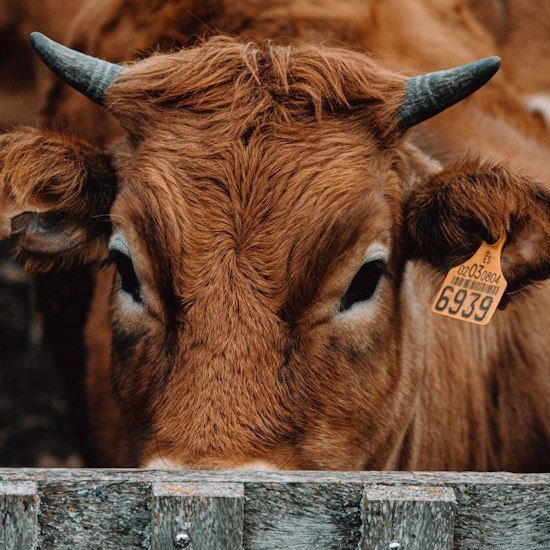Agriculture and Greenhouse gas emissions
Although one of the most debatable topics of this decade, there is no denying that climate change has brought misery on our Mother Earth in some form or another. Melting glaciers, rising sea levels, untimely season changes, and so on are just the tip of the iceberg when it comes to the effects of global warming. Among several factors that have been held responsible for global warming, the way we grow our food has comes under the lens quite often.
In an attempt to remain unbiased, I will present some information from both sides of the debate. Why so much fuss about methane and the cows? Can we blame livestock for our way of farming, polluting, and overconsuming? Well, not only farmers but some scientists also believe that we tend to blame the livestock and agriculture industry a bit too harshly for excess methane emissions. Methane is considered more dangerous for the environment because it has a higher ability to trap heat than CO2. Humans often tend to blame other factors for their own “eco-mess” and blaming just cows for methane overproduction is perhaps not that humane. In Australia for example, amounts of methane are increasing due to the expansion of the natural gas industry whereas levels of methane from the agricultural sector are falling. Some data also indicate that livestock’s production of methane gas is hugely overstated although it does play a significant role in GHG (Green House Gas) emissions. In the video below, some important information about sources of methane around the globe is addressed.
Why is Meat the Culprit?
Is livestock rearing all that bad for the ecology? Many meat-eaters and meat-producing companies would have you believe that this is simply another marketing agenda for the plant-based product manufacturers. However, several studies have clearly shown the truth. It has been seen that about 83% of agricultural land is used for animal farming. These lands are, of course, cleared of vegetation and made fit for livestock rearing. The result? Massive deforestation leading to an enormous amount of CO2 being released into the atmosphere. And no, the trees that we kindly leave behind are not enough to absorb this excess CO2.
This is not the only reason behind livestock causing global warming. Most animals, and primarily cows, release copious amounts of methane into the environment through burping and their excreta. The methane constantly contributes to air pollution and plays a significant role in increasing greenhouse gas emissions.
How do Plant-Based Burgers fare?
The fact that meat contributes to a high percentage of global warming and air pollution has, among other factors, led to the invention of the modern-day plant-based patties. Pioneers Impossible Foods and Beyond Meat believe that if more meat-eaters switch to the vegan burgers, the planet can yet be saved. But how do these burgers stack up in terms of consuming natural resources and emitting harmful gases as compared to beef patties? Let us find out.
A third-party analysis was conducted on the most recent Impossible burger and the report concluded that this burger has a carbon footprint that is 89% smaller than a beef burger. Not only that, but its production also consumes 87% less water than the production of a beef patty. But most of all, it is a boon for reducing CO2 pollution because it uses just 4% of the land that would have been required to set up a cow rearing facility.
Beyond Meat is by no means falling behind. An assessment of the company’s plant-based burger revealed that it produces 90% fewer greenhouse gases as compared to its beef counterpart. It also can be manufactured in just 7% of the land that would make about a quarter pound of beef.
Is the Grass Always Green?
Even though the main critics of plant-based burgers emphasize that the environment-friendly approach is nothing but a marketing gimmick, some scientists have come out in their support based on a whole other point. Yes, the data certainly shows that modern plant-based patties consume fewer energy sources and cause less air pollution than conventional meat patties, but they still consume more resources than traditionally-grown food based on locally-sourced ingredients. The key ingredients used in the plant-based patties still need to be transported and are also processed to a large extent.
However, given that the meatless burger companies aim to encourage meat-eaters to produce a lesser carbon footprint while not compromising on the taste, the trade-off between processed vegan burgers and locally-grown plant-based food seems to be a fair one.
Switching your palate
Meatless patty producers are doing their bit to save the ecology, but a lot of it also depends on individual contribution. If a subsequent number of meat-eaters cut down on the consumption of beef burgers even partially, it all adds up to realizing the dream of sustainable agriculture. After all, if you eat 3 beef burgers a day and you reduce it to even 2, in one year, that amounts to a saving of greenhouse gas emissions corresponding to 12 million cars! As a consumer, you always want to do your own research and decide what kind of diet substitution is best for you while consulting either a dietitian or a healthcare professional first.
Of course, there are other reasons it may be time to switch your palate. For one, the plant-based burgers are always readily available. The recent COVID-19 pandemic proved that. Even when most meat industries were closing down, the meatless burgers kept going. Secondly, there are health benefits that come with reducing the consumption of red meat. Finally, they taste as good as your regular burger, so much so that your guests would never be able to tell the difference even as they unknowingly contribute to the benevolent task of saving planet earth.

